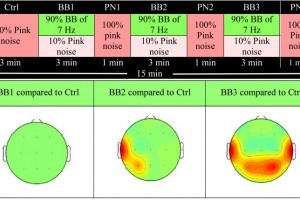What does the research say about your brain's need for Breaks?
During the pandemic era, many people participate in continuous meetings and do not even have time to drink a glass of water between meetings. But research has confirmed that people do not have good performance.
As the pandemic changed work routines and heightened the digital intensity of workdays, hundreds of researchers across Microsoft came together to study how work is changing, compiling one of the world's largest studies on the subject.
In research conducted in 2021 in their human factors laboratory, they concluded that people endure a lot of stress in these meetings, they cannot concentrate well and their performance drops.
But what is the solution to solve these problems? The answer is very simple: short breaks
“Our research shows breaks are important, not just to make us less exhausted by the end of the day, but to improve our ability to focus and engage while in those meetings,” says Michael Bohan, senior director of Microsoft’s Human Factors Engineering group, who oversaw the project.
Their team asked 14 people to participate in video meetings while wearing electroencephalogram (EEG) equipment. Volunteers participated in two different sessions. In one day, they attended four half-hour sessions back-to-back. On another day, there were four half-hour sessions with 10-minute breaks. Rather than hurriedly jumping from one session to another, participants meditated with the Headspace app during breaks.
This research showed three main points.
- Breaks between meetings allow the brain to “reset,” reducing a cumulative buildup of stress across meetings.
In two consecutive hours of back-to-back sessions, average beta wave activity—those associated with stress—increased over time. In other words, the stress was building up. But when participants were given a meditation break, beta activity decreased, allowing for a "reset." The average level of beta waves remained constant over the four sessions, with no stress-induced.
- Back-to-back meetings can decrease your ability to focus and engage.
When participants had meditation breaks, brainwave patterns showed positive levels of frontal alpha asymmetry, which correlates to higher engagement during the meeting. Without breaks, the levels were negative, suggesting the participants were withdrawn or less engaged in the meeting. This shows that when the brain is experiencing stress, it’s harder to stay focused and engaged. In sum, breaks are not only good for our well-being, but they also improve our ability to do our best work.
- Transitioning between meetings can be a source of high stress.
For the participants deprived of breaks, researchers also noticed that the transition period between calls caused beta activity, or stress levels, to spike. That might be because “you’re coming to the end of the meeting, knowing you have another one coming right up, and you’re going to have to switch gears and use your brain to think hard about something else,” Bohan says. For those participants, beta wave activity jumped again when new check-ins started. When people took meditation breaks, by contrast, the increase in beta activity dropped between meetings, and the increase at the start of the next meeting was much gentler and smoother. The takeaway: Breaks, even short ones, are important to make the transitions between meetings feel less stressful.
Microsoft has tried to implement the findings of this research in its online meeting software.
Using the results of this research, the research team has provided recommendations to make rest time more effective and energizing:
- You may feel more empowered through back-to-back sessions but change your mindset, research shows the opposite is true. View distances away from your computer as a necessary part of your work day.
- Find relaxation activities that calm your mind, such as physical activity such as walking, or reading something enjoyable. "Try not to use these five or 10 minutes to do other things," Bohan says. "Take a breath and step away from your screen."
- Before scheduling a video meeting, pause and ask yourself: Do we need a meeting about this? Use email or SMS if not necessary, so create more time to relax by considering other communication methods
- Before the meeting, write the agenda for that meeting and devote the last 5 minutes to summarizing
- Keep participants engaged and energized.
Source





Related Posts